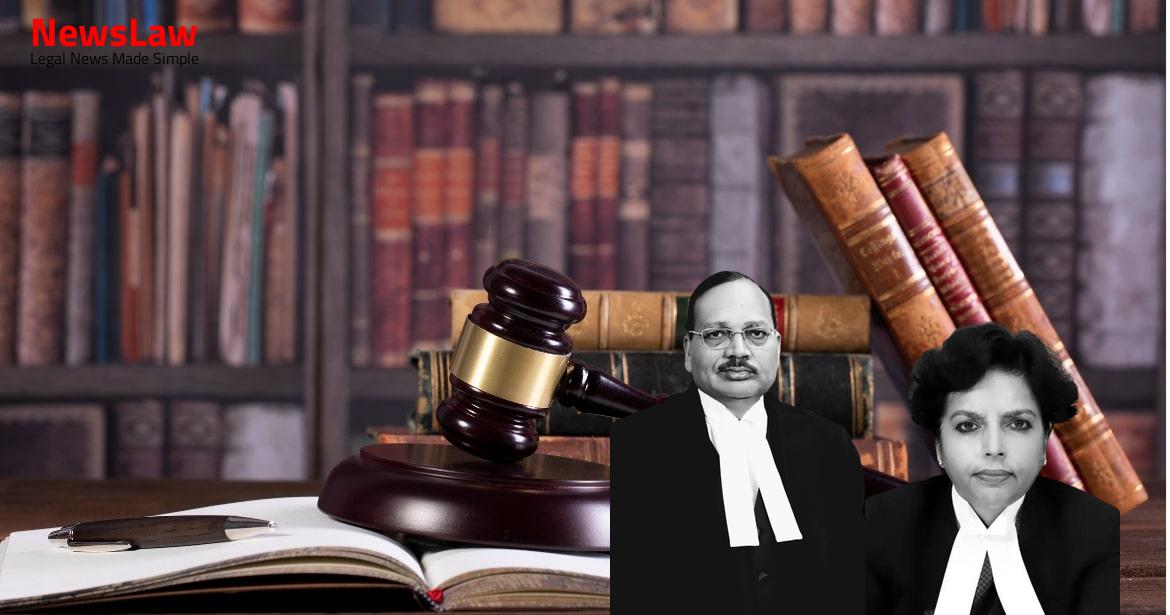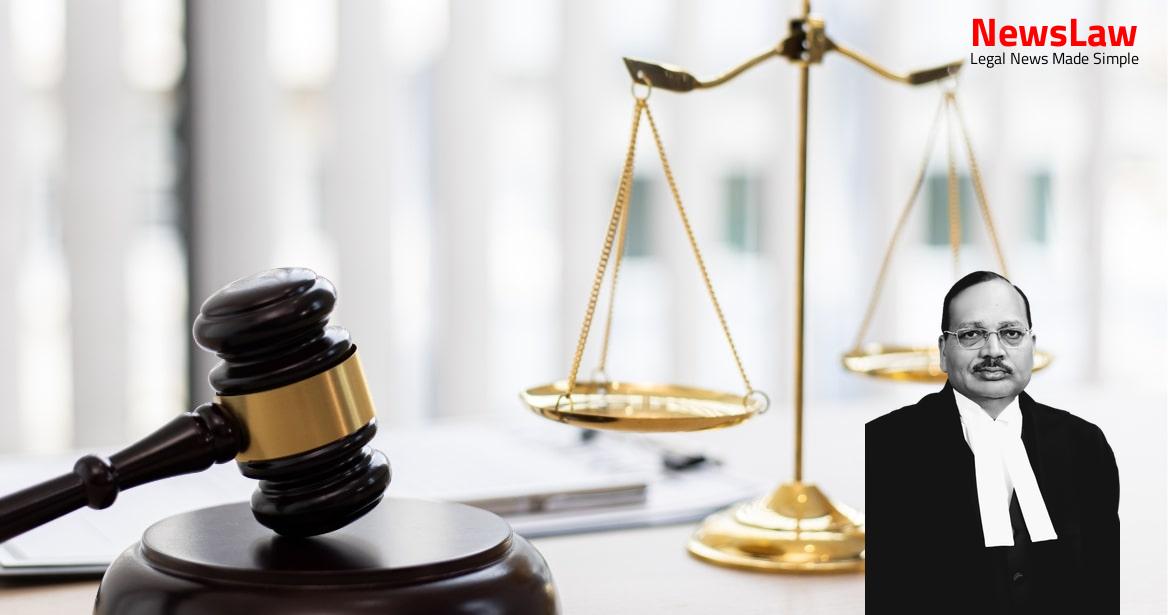In a recent legal case, the court was tasked with analyzing and harmonizing arbitration clauses in the midst of complex contract disputes. The court’s focus on the nuanced legal aspects of the agreements and the need for a streamlined arbitration process showcases the importance of precision in legal proceedings. Let’s explore the intricacies of navigating arbitration clauses in complex contractual arrangements.
Facts
- The Petitioner-DHDL issued a notice certifying the completion of the Southern Homes Project and the Rajapura Project, which were unreasonably rejected by the Respondents.
- The disputes were to be resolved through arbitration as per the agreements.
- The Respondents refused to appoint a sole arbitrator as requested by the Petitioner.
- The agreements also specified obligations related to the transfer of shares and construction management services.
- The refusal to accept the completion notices was alleged to be a breach of contract by the Petitioner.
- The arbitration was to be conducted in accordance with the rules of the Singapore International Arbitration Centre.
- The Petitioner was entitled to a fee for the construction management services provided.
Also Read: Analysis of Suppression of Information in Employment Selection: Legal Perspective
Arguments
- The Learned Senior Counsel representing the Petitioner argued that the Begur Company and Respondent No.1 acted unreasonably by not accepting the notice of completion.
- Reference was made to the P.R. Shah case to consolidate proceedings and avoid conflicting decisions.
- The dispute was not about the obligations after accepting completion notices but about whether completion was achieved for the Rajapura and Southern Homes Projects.
- It was highlighted that the disputes arose under the Rajapura SPA and Southern Homes SPA.
- Despite the omission of Section 11(6-A) by the Arbitration and Conciliation (Amendment) Act, 2019, the legislative intent continues to guide the Courts.
- The Court’s jurisdiction under Section 11 is to determine the existence of a written arbitration agreement and a prima facie arbitrable case.
- The Petitioner filed petitions under Section 11(6) seeking appointment of a sole arbitrator for disputes related to SCMA, RCMA, and Fee Agreement.
- The Respondents’ refusal to accept completion notices was seen as an attempt to avoid paying ‘Fee’ to the Petitioner.
- Arguments were made that the disputes can and should be arbitrated based on settled law.
- Citing relevant cases, it was emphasized that the Court’s role under Section 11(6) is limited to identifying arbitrable disputes and written arbitration agreements.
- The recent decision in Uttarakhand Purv Sainik Kalyan Nigam Limited v. Northern Coal Field Limited was relied upon to support the appointment of an arbitrator.
- The interlinking nature of RCMA and SCMA led to the request for a consolidated arbitral tribunal for resolving disputes related to both agreements.
- Respondent argues that the disputes fall within the Rajapura SPA and Southern Homes SPA, not the RCMA and SCMA.
- The principal agreements governing the transaction are the Rajapura SPA and Southern Homes SPA.
- RCMA/SCMA were executed to operationalize construction obligations.
- DHDL is meant to benefit from Rs.75 crores from Respondent No.2.
- Respondents face difficulties monetizing undeveloped land due to Petitioner’s breaches.
- Emphasize on the necessity for arbitration as per the dispute resolution mechanism in the principal agreements.
- If arbitration seat is found outside India, the current Section 11(6) applications are not maintainable.
- Court must examine if agreements include arbitration clause for the disputes in question.
- Arbitration for disputes connected to the main agreement is governed by the main agreement’s arbitration clause.
- If arbitration petitions are allowed, separate arbitral tribunals may need to be appointed under the RCMA and SCMA.
Also Read: Analysis of Cheating and Forgery in Passport Case
Analysis
- The analysis delves into the nature of the agreements between the parties and the amendments made to them over time.
- The Share Purchase Agreements and Construction Management Agreements are the key agreements under consideration.
- The disputes between the parties fall under the arbitration clauses of RCMA and SCMA as they have not been repudiated.
- The disputes should be adjudicated under Clause 11 of RCMA and SCMA and not under Clause 9 of the Share Purchase Agreements.
- The scope of the arbitration clause in Rajapura SPA/Southern Homes SPA is limited to issues related to the sale and purchase of shares.
- If the dispute is found to arise from the Share Purchase Agreements, the arbitrator can conclude the proceedings with liberty for redressal under SIAC rules.
- The existence of two valid arbitration clauses necessitates a harmonization to streamline the arbitration process.
- The Court must apply its mind to core preliminary issues within the framework of the Arbitration and Conciliation (Amendment) Act, 2015.
- The nature of arbitration clauses in the case is substantially different from Olympus Superstructure case.
- The agreements involve construction obligations that are distinct from the share transactions, highlighting the need for separate arbitration.
- Amendments to the agreements were made, and the clauses have to be harmonized to determine applicable arbitration proceedings.
- Three-judge bench clarified that the Court may conduct a ‘prima facie review’ at the stage of reference to prevent wastage of public and private resources.
- The purpose of the review is to weed out any frivolous or vexatious claims.
- The Court aims to prevent the wastage of resources by conducting a preliminary assessment to filter out baseless claims.
- To avoid multiplicity of proceedings and conflicting awards, disputes can be referred to a single arbitral tribunal.
- Parties have not denied the existence of an arbitral dispute or the arbitration clauses in the agreements.
- The RCMA and SCMA are two separate agreements, each with distinct facts and breaches.
- Consolidation of proceedings is inappropriate unless parties have agreed otherwise.
- The Fee Agreement requires computation based on financial components of both projects to avoid wastage of time and resources.
Also Read: Discrepancy in Date of Birth: Court’s Legal Analysis
Decision
- Disputes under Arbitration Petition No.17 and Arbitration Petition No.16 referred to sole arbitrator
- Sole arbitrator to decide consolidation of disputes and manner of arbitration proceedings
- Arbitration Petition No.16 of 2020 and Arbitration Petition No.17 of 2020 allowed
Case Title: DLF HOME DEVELOPERS LIMITED Vs. RAJAPURA HOMES PRIVATE LIMITED (2021 INSC 524)
Case Number: ARBIT.CASE(C) No.-000017 / 2020



